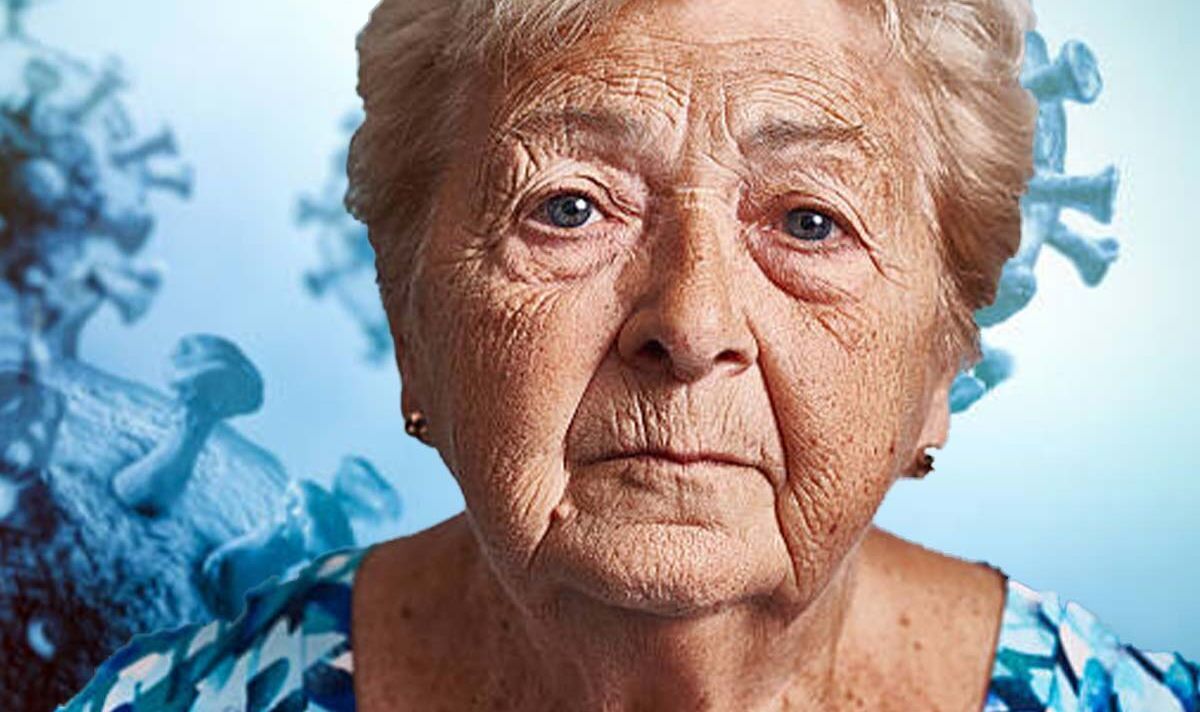
Nick Knowles reveals he kept his long covid 'a secret'
We use your sign-up to provide content in ways you’ve consented to and to improve our understanding of you. This may include adverts from us and 3rd parties based on our understanding. You can unsubscribe at any time. More info
Indeed, there are some symptoms that may be more likely to impact older people. The NHS says there are a number possible neurological symptoms which some people with long Covid may have. It says delirium in older people is a possible sign. Some people also report cognitive impairment, headache, sleep disturbance, pins and needles or numbness and dizziness.
The Mayo Clinic says there are a number of other common signs and symptoms that linger over time.
These include:
- Fatigue
- Shortness of breath or difficulty breathing
- Cough
- Chest pain
- Muscle pain or headache
- Fast or pounding heartbeat
- Loss of smell or taste
- Depression or anxiety
- Fever
- Dizziness when you stand
- Worsened symptoms after physical or mental activities.
The British Heart Foundation (BHF) says the Office for National Statistics (ONS) estimates that 1.3 million people in the UK were experiencing long Covid symptoms as of January 2, 2022.
This was defined as symptoms that had lasted more than four weeks from the initial infection. It notes this amounts to just over one in 50 of the population.

The charity states: “We are still learning how long the illness lasts and it varies between people.
“It’s important to note that lasting effects aren’t unique to COVID-19 – other viral illnesses can also have lasting effects.”
The BHF adds: “There isn’t one single test to diagnose long Covid. It’s a condition that isn’t fully understood yet.
“Speak to your doctor if you are experiencing lasting long Covid symptoms. They may refer you for tests to help understand how long Covid is affecting you and how it can be treated. Or it may even be that there is another cause for your symptoms.”
The NHS says most infections with Covid resolve within the first four weeks, though symptoms of long Covid can be many and varied and can change over time.
The NHS notes that how long it takes to recover from COVID-19 is different for everybody, but many people feel better in a few days or weeks.
The health body explains that the chances of having long-term symptoms does not seem to be linked to how ill you are when you first get COVID-19, as “people who had mild symptoms at first can still have long-term problems”.
The NHS advice on long Covid says people who are recovering from an illness often report feeling a little better each day, and it can take time to fully recover.
The NHS says most infections with Covid resolve within the first four weeks, though symptoms of long Covid can be many and varied and can change over time.

It says: “With long Covid you may feel fatigued after activities which were not previously difficult to cope with, and this can affect your quality of life and ability to function as you did previously.”
This is more likely to occur at the end of the day or at the end of a busy week, according to the organisation.
“Sometimes people experience a number of other symptoms worsening after physical stress. This could include brain fog, muscle aches or headaches alongside increased fatigue.
people experience a number of other symptoms worsening after physical stress.“Clinicians may call these ‘post exertional symptoms’. They are not in themselves dangerous but can affect your quality of life.”
It says: “With long Covid you may feel fatigued after activities which were not previously difficult to cope with, and this can affect your quality of life and ability to function as you did previously.”
“Sometimes people experience a number of other symptoms worsening after physical stress. This could include brain fog, muscle aches or headaches alongside increased fatigue.
The NHS says in December 2020, NHS England announced the launch of post Covid clinics.
The health body says: “The clinics bring together a wide range of healthcare professionals including doctors, nurses, physiotherapists and occupational therapists to offer both physical, psychological and rehabilitation needs assessments.
“The Post Covid clinics aim to bring a more holistic diagnostic picture of Long Covid.”
The health body says if you have mental health symptoms, such as anxiety or depression, you may be referred to additional local services for specialist mental health assessment and support.
The NHS says in December 2020, NHS England announced the launch of post Covid clinics.
“The post Covid clinics aim to bring a more holistic diagnostic picture of long Covid.”
Source: Read Full Article